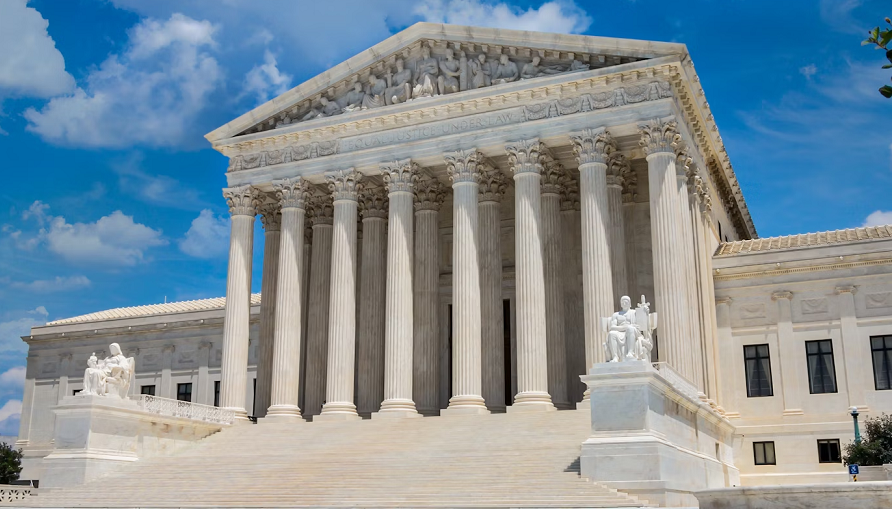 POLICY
POLICY
 POLICY
POLICY
 POLICY
POLICY
The Supreme Court today avoided making a decision in two closely watched social media moderation cases and instead sent them back to the lower courts for review.
The justices issued the decision unanimously. There were four separate concurrences, opinions written by justices who agree with the majority view but for different reasons.
The two cases at the center of the decision, Moody v. NetChoice and NetChoice v. Paxton, were brought against Republican-backed social media laws passed in Florida and Texas, respectively. The laws are designed to limit the manner in which social media platforms can moderate users’ posts. Both pieces of legislation were challenged by NetChoice and CCIA, two trade groups that represent many of the tech industry’s largest players.
Florida’s social media law applies to social media companies with at least $100 million in annual revenue or 100 million monthly users. It seeks to tackle alleged censorship on social media platforms by prohibiting those platforms’ operators from making certain moderation decisions. Additionally, the law requires companies to notify users when their posts are removed or modified.
Texas’ social media legislation includes a similar set of provisions. One of the main differences is that it applies to platforms with more than 50 million active monthly users.
After NetChoice and CCIA challenged Florida’s social media legislation, a district court blocked its enforcement. That ruling was later reaffirmed by the U.S. Court of Appeals for the 11th Circuit. In Texas, a federal distinct court blocked some of the local social media law’s provisions but the U.S. Court of Appeals for the 5th Circuit later allowed the legislation to go into effect.
In today’s ruling, the Supreme Court tossed out the lower court decisions and sent the cases back for review. In the majority opinion, Justice Elena Kagan wrote that the lower courts failed to review the two cases thoroughly.
“[T]he question in such a case is whether a law’s unconstitutional applications are substantial compared to its constitutional ones,” Kagan wrote. “To make that judgment, a court must determine a law’s full set of applications, evaluate which are constitutional and which are not, and compare the one to the other. Neither court performed that necessary inquiry.”
Although the Supreme Court avoided ruling on the legality of the social media laws, the majority opinion criticized the Texas legislation.
The Texas law “is unlikely to withstand First Amendment scrutiny,” the majority opinion stated. “This Court has many times held, in many contexts, that it is no job for government to decide what counts as the right balance of private expression — to ‘un-bias’ what it thinks biased, rather than to leave such judgments to speakers and their audiences. That principle works for social-media platforms as it does for others.”
The CCIA welcomed the ruling, stating that “in a complex series of opinions that were unanimous in the outcome, but divided 6-3 in their reasoning, the Court sent the cases back to lower courts, making clear that a State may not interfere with private actors’ speech.”
Support our open free content by sharing and engaging with our content and community.
Where Technology Leaders Connect, Share Intelligence & Create Opportunities
SiliconANGLE Media is a recognized leader in digital media innovation serving innovative audiences and brands, bringing together cutting-edge technology, influential content, strategic insights and real-time audience engagement. As the parent company of SiliconANGLE, theCUBE Network, theCUBE Research, CUBE365, theCUBE AI and theCUBE SuperStudios — such as those established in Silicon Valley and the New York Stock Exchange (NYSE) — SiliconANGLE Media operates at the intersection of media, technology, and AI. .
Founded by tech visionaries John Furrier and Dave Vellante, SiliconANGLE Media has built a powerful ecosystem of industry-leading digital media brands, with a reach of 15+ million elite tech professionals. The company’s new, proprietary theCUBE AI Video cloud is breaking ground in audience interaction, leveraging theCUBEai.com neural network to help technology companies make data-driven decisions and stay at the forefront of industry conversations.